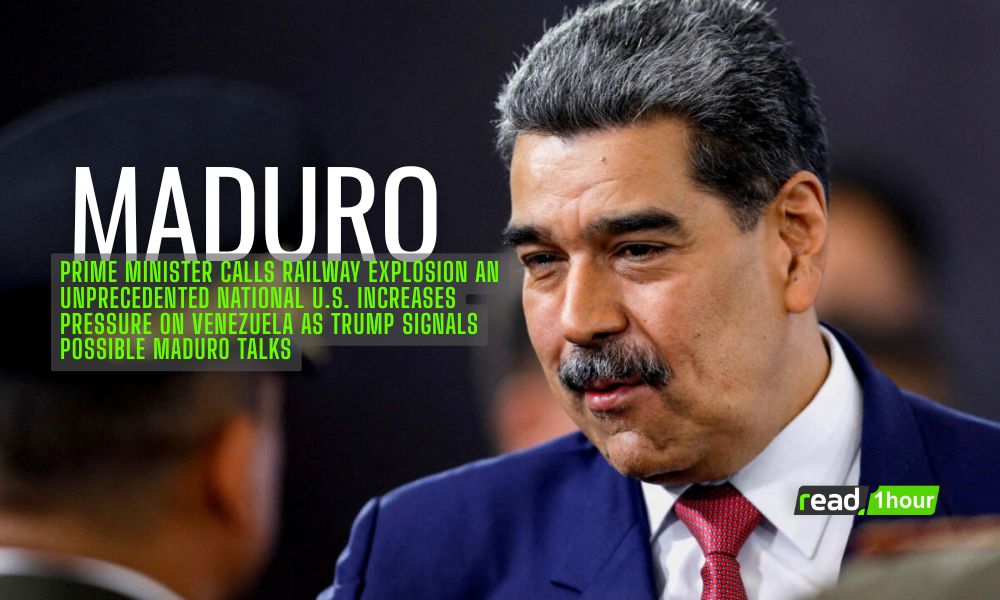U.S. Increases Pressure On Venezuela As Trump Signals Possible Maduro Talks
U.S. boosts pressure on Venezuela as Trump signals possible talks with Maduro amid rising political and economic tensions.
The United States has intensified diplomatic and economic pressure on Venezuela, even as former President Donald Trump hinted at the possibility of opening direct talks with President Nicolás Maduro. The mixed signals reflect Washington’s evolving strategy toward a country long viewed as one of the most politically and economically unstable in the Western Hemisphere.

In recent weeks, U.S. officials have expanded sanctions targeting Venezuela’s state-run oil industry, senior government leaders, and financial networks. The measures are designed to weaken Maduro’s grip on power and force his government to negotiate democratic reforms. According to the State Department, the pressure campaign aims to support “the restoration of free elections and protection of human rights in Venezuela.”
At the same time, Trump’s recent remarks about being open to discussions with Maduro have introduced a new layer of complexity. Speaking at a political event, Trump said that “talks are possible if they lead to real change,” sparking debate among foreign policy experts and Venezuelan opposition leaders.
For years, U.S. policy toward Venezuela has relied heavily on sanctions and diplomatic isolation. Critics argue that the strategy has not produced significant political change, while supporters say it remains one of the few tools available to challenge Maduro’s authoritarian rule.
The latest sanctions include restrictions on oil exports, banking transactions, and individuals linked to corruption and human rights violations. These actions have placed further strain on Venezuela’s already fragile economy, which continues to suffer from hyperinflation, food shortages, and mass migration.
Trump’s suggestion of negotiations marks a noticeable shift from previous hardline stances. During his presidency, Trump’s administration recognized opposition leader Juan Guaidó as Venezuela’s interim president and pushed for Maduro’s removal. Now, with the political landscape evolving, several analysts believe that Washington may be reassessing its strategy.
Some experts say that potential talks could offer new opportunities for diplomatic progress. “Direct engagement doesn’t mean abandoning pressure,” said Latin American analyst Sofia Delgado. “It can be a tool to push for reforms or humanitarian access.” She added that any discussions would likely require strong conditions, including political concessions from Maduro.
However, opposition groups within Venezuela reacted cautiously. Many fear that negotiations without clear demands could strengthen Maduro’s position rather than weaken it. Guaidó’s supporters warned that the U.S. must not legitimize a leader they view as undemocratically holding power.
Regional leaders across Latin America are also watching the developments closely. Countries such as Colombia, Brazil, and Peru remain deeply concerned about the humanitarian crisis, which has driven millions of Venezuelans to flee across borders.
For now, the U.S. strategy appears to be a combination of increased pressure and potential dialogue—a dual approach that could either open new diplomatic paths or deepen political tensions.
As Washington and Caracas brace for the next phase of relations, one thing is clear: Venezuela’s crisis remains one of the most challenging foreign policy tests for global powers. Whether pressure, negotiations, or a mix of both will shift the political landscape is still uncertain.
